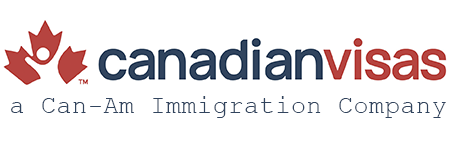Dec 4, 2011 | Immigrate to Canada, Immigration, New Laws, Skilled Workers
Next year, Canada will be increasing the Federal Skilled Workers Program. Canada will be admitting up to 10,000 more skilled immigrants than in past years.
The increase in the number of workers will help address the demands of the job market, and help decrease years’ worth of pending applications to the program, the government has said.
The current priority of the government is still the economy. Minister Jason Kenney of the Ministry of Immigration and Multiculturalism says that the government recognizes the value of immigration to the Canadian labor market. Unlike other countries, Canada recognized the importance of the contributions made by skilled immigrants, because they add to Canada’s competitiveness in the international arena.
The government expects levels of immigration to remain fixed between 240,000-265,000, although during the next year, a big chunk of this number would be allowed to enter Canada under the Federal Skilled worker program. Just for this year alone, just fewer than 50,000 immigrants were allowed entry into Canada through this program, and that number is expected to increase to just fewer than 60,000 in 2012.
New studies done by the government show that the Federal Skilled Workers Program is successful, with 89% of immigrants who were allowed entry through this program being employed within 3 years, and 95% of those who hired them being very happy with the services rendered.
Minister Kenney says that the government will keep on exerting effort to improve the immigration system, so that it would be more responsive and adaptable to the needs of the labor market. Recently, the Canadian government has announced many changes to the immigration system. Keep an eye on our blog to learn about these as they happen. Of course, if you are interested in immigrating to Canada through the Skilled Worker Program, please give us a call so we can help you file your application today!
Nov 13, 2011 | Immigrate to Canada, Immigration, New Laws
Recently, the Canadian government announced that it will be soliciting feedback and opinions from the public on its intention to make it mandatory for those who want to migrate to Canada to take and pass a series of French or English language tests. Immigration applicants who are aged between eighteen (18) and fifty-four (54) years old would be required to take these language tests. In addition, the ability to both speak and listen to French or English may be tested. This new change, according to Citizenship and Immigration Canada, would best gauge the applicants’ mastery of French or English.
The change offers several choices to those who want to migrate to Canada, but would not want to pay for the language tests. If the applicant has finished his/her education where French or English is the main language of education, then they will have the option of not having to pay for the language test.
According to Citizenship and Immigration Canada officials, possessing the ability to effectively communicate in either or both English or French is a key component to being successful as new Canadian citizens. The government’s intention to make these new language tests mandatory ensures that immigration applicants can speak either French or English at the time of their application for Canadian citizenship, thus making sure that the citizenship program are effective for both the new Canadian citizens, and for the country of Canada.
This new policy raises some questions: How would the public feel towards the new requirement that make it mandatory for immigration applicants to take French/English language tests? What about those who may be unable to read or write in English or French, but have an excellent grasp of spoken English or French? What about those people who can speak excellent French or English, but are incapable of either reading or writing in French or English? If you think this new language testing requirement could affect your citizenship application, contact our firm now to discuss your options!

Nov 5, 2011 | Family Immigration, Immigrate to Canada, Immigration, In the News, Where to seek help

If you have elderly parents or grandparents and have tried to bring them to Canada to be with you, we have good news. All of those applications that have been pending for so long will now be processed.
Recently, Minister Jason Kenney made an attempt to “reduce the number of elderly relatives of immigrants” based on the “social services they will consume.” He obviously did not realize how important extended family is. Bringing your parents or grandparents to Canada will give you the opportunity to work more hours and earn more money while still knowing your children are growing up in a loving family environment. Minister Kenney’s viewpoint, fortunately, has not been accepted in Parliament.
On Friday afternoon, the news was released that the Canadian government will be reducing the visa backlog for elderly relatives of immigrants. Imagine how Minister Kenney felt when he had to make that announcement! The program is called the Action Plan for Faster Family Reunification and has four parts:
- 60% more sponsored parents and grandparents will be admitted to Canada next year.
- A new visa, called the “Parent and Grandparent Super Visa” is being released. This is a 10-year visa that allows parents and grandparents to spend up to 24 months at a time in Canada. Instead of waiting 8 years to get a visa, your parents and grandparents will only need to wait 8 weeks! This new visa is being released on December 1, 2011, so contact us now!
- The Canadian government will be considering public opinions when formulating its new policies.
- The Canadian government will not be accepting any more parent or grandparent sponsorship applications during a temporary pause of up to 24 months while they reduce the backlog. This may sound bad, but considering the 8-year waits of the past, a 2-year wait is progress!
Until the sponsorship pause is complete, we will not be able to file parent or grandparent sponsorship applications for you, but we can file for the Parent and Grandparent Super Visa! Please contact us today to find out the fastest way to bring your elderly relatives to Canada to live with you!
Oct 19, 2011 | How to find Employment, Immigrate to Canada, In the News
In a recent article posted on the MarketWatch section of the online edition of the Wall Street Journal, Bill Mann discusses how the current economic state of Canada is attractive to Americans and American workers.
According to the Globe and Mail, Canadian immigration lawyers are reporting a dramatic increase of calls from Americans looking to move to Canada.
Statistically, a record number of Americans had applied for temporary work visas last year, as demonstrated by the latest Immigration Canada statistics, largely driven by the contrasting health of the two countries’ labor markets.
Take into consideration that the jobless rate in the U.S. is 9.1% while in Canada it is 6.3%.
Other factors that are attracting American immigration aside from work opportunities include affordable healthcare, a stronger banking system and a stable housing market.
At the immigration consulting firm of Can-Am Immigration, our experienced team has helped many individuals with their immigration needs. We specialize in immigration to Canada. We are experienced with helping people complete the necessary documentation and gain the knowledge needed in order to immigrate. We help families and individuals. We help those looking to work in Canada, study in Canada and those looking to sponsor family members.
Contact us today for a consultation. We also provide Facebook consultations.

Sep 8, 2011 | How to find Employment, Immigrate to Canada, In the News
 Normally you would hear of people fleeing to America. Blame it on the melting American economy, but now you hearing of people heading to work in Canada.
Normally you would hear of people fleeing to America. Blame it on the melting American economy, but now you hearing of people heading to work in Canada.
The unstable U.S economy is driving an increased number of Americans to search for better employment opportunities up north. Citizenship & Immigration Canada say that the number of Americans entering Canada as foreign workers has doubled between 2008 and 2010.
On Thursday, U.S. President Barack Obama will unveil a plan to reduce the unemployment rate across the country. A stimulus that will include, money to refurbish schools and provide state aid for teachers and first responders, and tax incentives for small businesses to hire the long-term unemployed and military veterans, which to me is basically another gamble with $445 billion dollars that can only increase what is already a sky-high U.S debt.
Canada was lucky to have escaped the economic meltdown, and that is primarily due to Ottawa who was committed to refusing deregulation of the banking sector.
Immigration lawyers and consultants working in the Windsor-Detroit area are claiming an increase of business from American clients who have secured job offers in Canada and are applying for work permit and permanent residency.
Americans make up the second-largest group of foreign workers in Canada, behind Filipinos, most of who are nannies and caregivers. But there isn’t just an increase in American foreign workers; we are seeing a greater number of American students coming to learn in Canadian post-secondary institutions.
Even tuition, at 3 or 4 times the rate for Canadian students, American students are choosing Canadian schools for financial reasons, they are still a fraction of the cost of the majority of U.S. post-secondary institutions.
Although there are many traveling to Canada for work, there are those Americans who have been unemployed since 2008 and are still hoping that they can find a Canadian employer who will sponsor them. Many of these people find themselves stuck with the most common dilemma: in order to get a work visa, you must have a job offer. But in order to get a job offer, you need a work visa.
In Canada, to apply for a work permit (work visa), foreign workers must first secure a job offer from a Canadian employer. Once a job offer has been presented, Human Resources and Skills Development Canada (HRSDC) will make the determination of whether a visa should be issued or not.



 Useful Resources for Canada
Useful Resources for Canada
 Useful Resources for U.S.
Useful Resources for U.S.
 Our Local Immigration Services
Our Local Immigration Services